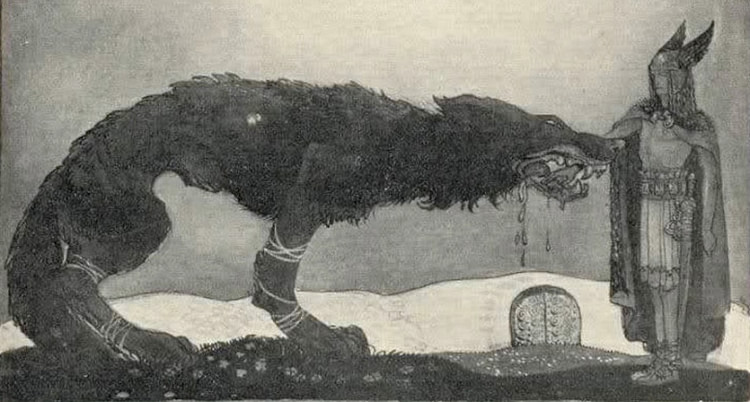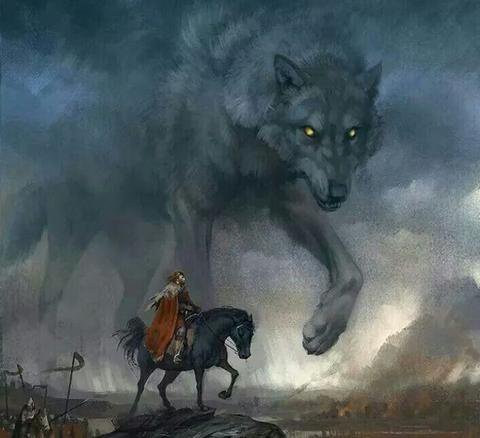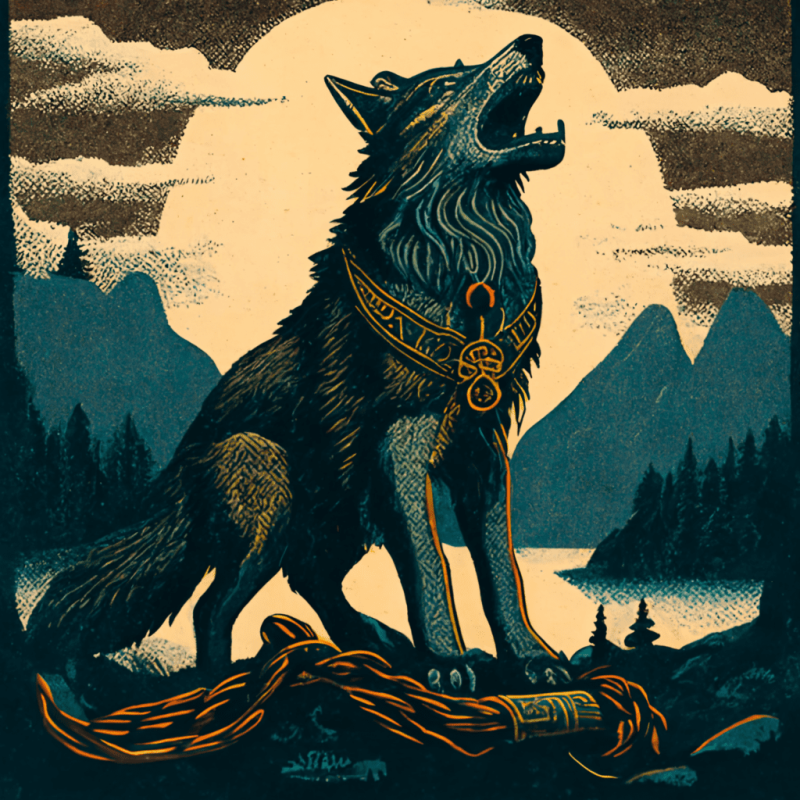Dive into the mesmerizing world of Norse mythology, filled with epic tales of gods, giants, and monsters. One such fascinating character is Fenrir, Loki’s monstrous wolf offspring, a central figure in many Norse tales.
Fenrir’s Birth and Rise in Asgard
Fenrir was born to Loki, the notorious trickster god, and the giantess Angrboda. His siblings include the half-dead, half-living Hel and the gigantic serpent, Jormungandr. Initially raised among the gods, Fenrir’s rapid growth and uncanny strength begin to instill fear in the hearts of the Aesir.
The Prophesy and Fear of the Gods
The gods’ fears stem from a dreadful prophecy predicting Fenrir’s role in the orchestration of Ragnarok – the cataclysmic end of the world. According to this prophecy, Fenrir would bring about the demise of many gods, including the Allfather, Odin. This prophecy sets the stage for treachery, broken pledges, and an insatiable longing for retribution.
The Cunning of Loki’s Progeny
Inheriting his father’s craftiness, Fenrir was as cunning as he was ferocious. His narrative involves epic moments ranging from his early years in Asgard to his deception that leads to his imprisonment, only to be released at the dawn of Ragnarok.
Fenrir in Viking Culture
Fenrir’s dramatic life—his rise, downfall, and vengeful prophecy—offers compelling insights into Viking cultural values, beliefs, and fears. His tale reflects the Norsemen’s complex understanding of destiny and courage, as well as their shared views on revenge and retribution.
The Tragic Appeal of Fenrir
Despite his reputation, Fenrir commands a certain tragic appeal in the lore. Not inherently evil, Fenrir was thrust into a villainous role by fearful gods. His eventual rebellion, therefore, seems less of an evil act and more a justified response to the gods’ betrayal.
Reflections on the Tale of Fenrir
In Fenrir, Norse mythology presents a character who typifies not just destructive power but the consequences of fear, broken promises, and betrayal. Fenrir’s narrative serves as a stark reminder that even the best intentions could lead to catastrophic repercussions.
Conclusion
Exploring Norse mythology, particularly the enthralling tale of Fenrir, offers a thrilling journey through Viking myths. His story is a testament to the vibrant and complex world of these ancient narratives.



